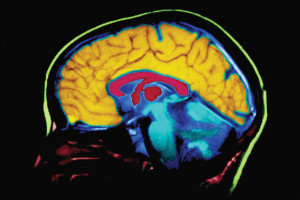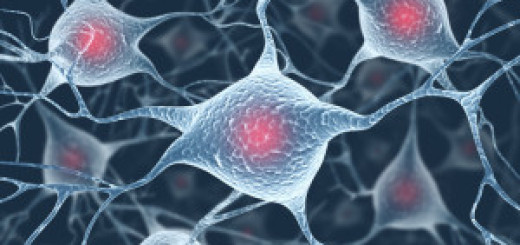Research on skin cancer drug shows possible benefit in Alzheimer’s
 We’ve had some exciting news broke today about a new study that found an FDA-approved drug for a form of skin cancer might prove to be an effective treatment against Alzheimer’s disease. We’re a long way from knowing if it will actually work as an Alzheimer’s therapy, but this study is promising – so promising that the Alzheimer’s Association will be funding the next step in understanding the mechanisms behind the study.
We’ve had some exciting news broke today about a new study that found an FDA-approved drug for a form of skin cancer might prove to be an effective treatment against Alzheimer’s disease. We’re a long way from knowing if it will actually work as an Alzheimer’s therapy, but this study is promising – so promising that the Alzheimer’s Association will be funding the next step in understanding the mechanisms behind the study.
First, some background”¦
Plaques are deposits of a protein fragment called beta-amyloid that build up in the spaces between nerve cells. Though most people develop some plaques as they age, those with Alzheimer’s tend to develop far more. It is strongly suspected that plaques somehow play a critical role in blocking communication among nerve cells and disrupting processes that cells need to survive.
Bexarotene is used to treat a form of skin cancer. Previous research showed that this drug stimulates expression of a protein called apoE, which helps with the degradation of beta amyloid.
The Claim
In this study, scientists conducted a trial in mouse models of Alzheimer’s disease of bexarotene, with the goal of enhancing clearance of beta amyloid from the brain by increasing levels of ApoE protein. The scientists found that the orally-administered drug rapidly lowered levels of soluble beta amyloid and amyloid plaques in both young and older test animals, and also improved some cognitive and behavioral deficits.
The methodology
Scientists orally administered the bexarotene to mouse models that had been bred with Alzheimer’s disease. They then observed changes in mouse behavior and the levels of beta amyloid in the brain after delivery of the drug.
Beyond the headline
This is very exciting stuff! Investigating an already FDA-reviewed and -approved therapy may mean that the drug development process takes a somewhat shorter time because the drug has already been tested in hundreds, perhaps thousands, of people. As a result, we already know a lot about the drug and its side effects, though, in this case, it is in cancer populations, not Alzheimer’s disease. So there is still a great deal to learn. For example, without trials in people with Alzheimer’s, we know nothing yet about dose levels or how this compound may interact with other Alzheimer’s drugs.
It’s also important to remember this study of bexarotene is in a mouse model of Alzheimer’s disease. Mouse models of Alzheimer’s are limited in how closely they represent human Alzheimer’s, and mice are not people; so, we are still far away from knowing if this has potential as a therapy for people with Alzheimer’s.
The bottom line
This study is very preliminary. People with Alzheimer’s and their caregivers should not ask their doctor for this drug to treat Alzheimer’s disease. The Alzheimer’s Association awarded the senior scientist on this article, Gary Landreth of Case Western Reserve University, Cleveland, its prestigious Zenith Award in 2011 for research that will follow on from this study to investigate the mechanism of action of this compound. The goal is to further illuminate how and why it works in the way described in the Science Express article, perhaps setting the stage for trials in people – so stay tuned for more on this!
For more information on the latest news and developments in Alzheimer’s research, visit www.alz.org/research.


















would defently volunteer for clinical trials.
will volunteer
Hi Janice, just wanted to send you a link to TrialMatch: http://www.alz.org/research/clinical_trials/find_clinical_trials_trialmatch.asp
This is a free service that makes it easy for people with Alzheimer’s, caregivers, families and physicians to locate clinical trials based on personal criteria (diagnosis, stage of disease) and location. I do not know when or if there will be studies related to this particular cancer drug, but this is a good clearinghouse for the opportunities available. As always, you can contact someone at the Alzheimer’s Association at anytime, day or night at 800.272.3900 with your questions.
With a life expectancy of 5 or 6 years why would I not try this??
We already know that people can safely take this drug. I hope that a trial begins soon to determine what dosage may or may not provide a treatment for Alzheimers. Time should not be wasted.
My husband is fifty three and suffers from Alzheimers. Would be willing to try.
Certainly some of the cancer patients treated have had alzheimers; can any information be gleaned from that subset of cancer treatments?
Oh I love this post. My grandfather past away from Alzheimers when I was a jniour in high school. He battled with it for 11 years and I know how it is a really difficult disease for everyone involved. Good luck on your meal and bravo for keeping her spirit of cooking alive.
the information that charley ask fornamely cancer patients treated have had alzheimers is very important .hopefully it will be announced soon.
my husband is suffering from alzheimers. would definitely be willing to try. thank you so much.
I enjoyed your article. Please pass by and visit my project. David http//www.indiegogo.com/The-Alzheimers-Blitzkrieg?a=441422
Modern science and tecgoolnhy are constantly developing. New diseases are also coming out without a second’s hesitation!But it’s just a coincidence of Yin&Yang balance thoery by Lao Zi(the great philosopher during Chinese Spring and Autumn Period).
since science doesn’t prove yet that this bexarotene can really cure an alzheimer’s disease, we are still not in capable in using bexarotene as a cure in alzheimer’s disease. this drug can only cure a skin disease for now. but soon enough if it is already proven that it can really cure an alzheimer’s disease it would still costs too expensive. Those who take it for cancer use 4-10 pills a day depending on their height and weight, general health and type of cancer being treated.
This condition results in an excessive amount of protein being allowed to leave the blood and enter the urine.
He wasn’t able to fully focus on work, his wife, his children or on himself – and he found it hard not to feel like it was a lose-lose situation during
those years. The disorder affects the sleep of thousands of people each night and can become a very
serious problem if gone untreated; it can even become life threatening.